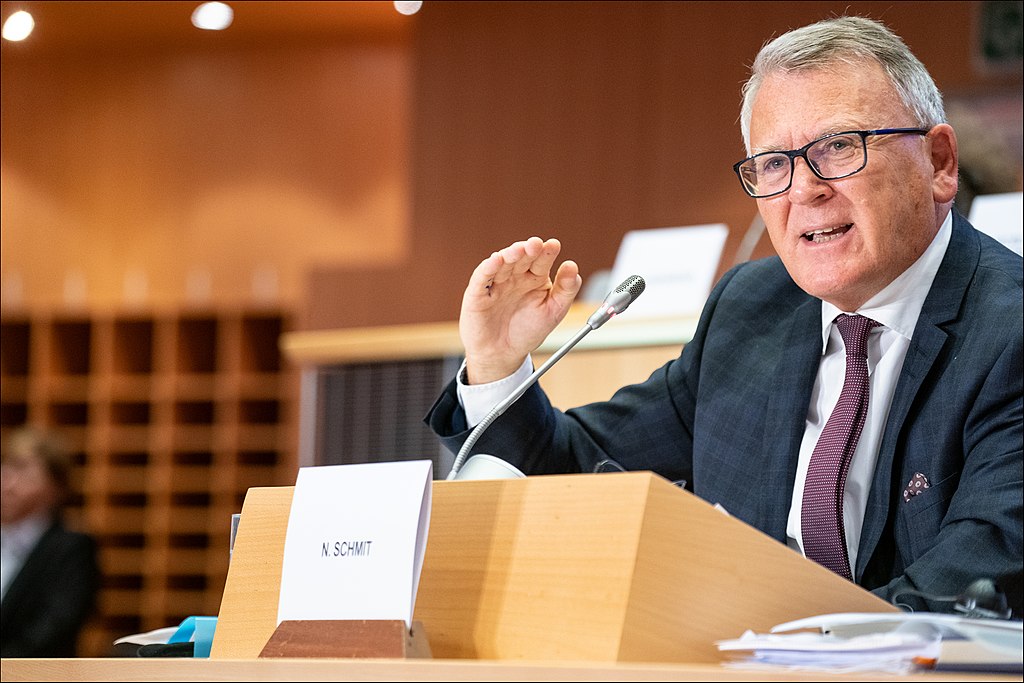Social Economy: A few steps left for a statute for EU cross-border non-profit organisations ?
The most common legal forms of non-profit organisations are mainly associations and foundations. These two legal forms are the most defined in various European legal codes. However, they are far from being the only forms existing in most EU member states.
Here’s a brief summary about one of the latest papers from the EU JURI Committee on this issue and the solutions it promotes.

Informal meeting of Justice and Home Affairs ministers in Ljubljana, Slovenia. The chair of the JURI Committee, Mr Adrián Vázquez Lázara, was also part of this meeting
Source: JURI Committee Press, Twitter
A more common use of existing statuses for social economy organisations
As the social economy gains momentum in the EU, especially in Western countries, some legal forms until now marginally used by some social enterprises are becoming more common. Mutuals, like cooperatives, are far from being linked to an exclusively profitable character, as they underlie “a progressive objective of functional neutralisation of legal forms”. Sometimes, at the national level, there are even “public benefit organisation” statutes for NFPs that have objectives deemed to be of public interest. This distinction is innovative because this status can be obtained by organisations with commercial activities, just as it can be obtained by companies with a limited redistribution of dividends and profits to their shareholders. In Italy and France, for example, the status of “third sector entity” and ESUS accreditation exist respectively. Legislation therefore seems to be moving in this direction, particularly in Western European countries, where the social economy is the most established and where its definition is being extended to include the “third sector”.
Secondly, behind these statutes there are special tax treatments. Indeed, NFPs very often benefit from advantageous taxation, starting with the existence of tax-free donations.
The place of the non-profit sector in the EU treaties and its judicial interpretation
However, this placing of non-profit organisations and their status on the European agenda is not recent. The TFEU explicitly mentions them (Article 54(2)), while the TEU emphasizes “their fundamental role” (Article 11(2)) without giving further details. However, it is above all the case law of the CJEU that interprets the articles of these treaties. It focuses, for example, on the removal of legal obstacles to their cross-border activity (European Commission v. Austria, C-10/10, 2011), on equal treatment with organisations subject to another legal regime, particularly with regard to competition law (Ambulanz Glöckner, C-475/99, 2001), or on the recognition of specificities to justify derogation from the ordinary legal regime for public contracts (Italy Emergenza, C-424/18, 2019).
Despite this long-standing recognition by the Treaties as well as by the competent courts, NPOs do not have a status under European competition law. However, associations and other NPOs have been campaigning for some 30 years to obtain such a status. It is only recently that the issue has come back on the table, notably through a resolution of the European Parliament in which the Commission is asked to take measures to establish such a statute (Resolution of 5 July 2018 with recommendations to the Commission on a Statute for social and solidarity-based enterprises, 2016/2237).
Such a reform of the current legal framework would disrupt the current status quo which is neither desirable nor sustainable for NPOs. Several options are prioritised by the European legislator. The first of these would replicate the old idea of having a European legal form of this kind. The problem with this proposal is that it requires a unanimous decision as it would use Art. 352 TFEU as the legal basis. The second option would introduce these statutes via the enhanced cooperation mechanism, which would circumvent unanimity. In this case, developments in national legislation would not necessarily be taken into account.

Buildings of the Court of Justice of the EU in Luxembourg, Luxembourg
Source: Pixabay (image free of rights)
A third option seeks to establish, via a directive, a kind of status or label similar to those already in place in France or Italy. Such a label would allow an NPO to be recognised in all Member States, regardless of where it is domiciled. Member States would therefore be obliged to grant foreign organisations with this label the same rights, benefits and tax and legal obligations as national organisations with it.

Mr Nicolas Schmit, European Commissionner for Jobs and Social Rights,
who will present the EU Action Plan on Social Economy in November.
Source: CC-BY-4.0: © European Union 2019 – Source: EP
The latest report of the JURI Committee seems to be moving towards this third way. It is, according to the Committee and DG Internal Affairs, the most worthy of recommendation in view of its potential realisation and the objectives of European legislation in this field. This report does not represent integrally the Social Good Accelerator’s thoughts and wishes on that field, but we believe that it goes in the good direction. More information would highlight this issue with the publication of the EU Action Plan on Social Economy in November.
Sources:
– JURI Committee of the European Parliament, A statute for European cross-border associations and non-profit organizations, 2021.
